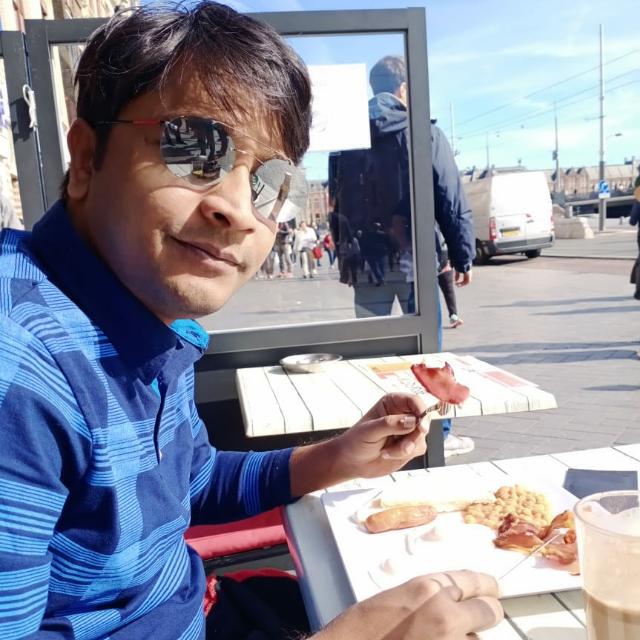I could have framed a better title but for the infantile piece of work the movie is, the amateurish rhyming in the title seems to do justice to it. Radhe, directed by Prabhudeva is a remake of the Korean movie The Outlaws. I am not sure if the makers bought the rights for the movie. If they did, they could have saved a lot of money. Surely the makers of the original would not be able to find the theme of their movie in this mish mash and on the off chance they did, they would not dare claim any rights over it.
Radhe, a remake of the Korean movie The Outlaws, fails to capture the essence of the original, leaving viewers questioning the need for this lackluster adaptation.
Early in the movie, a 55-year-old man masquerades as an aspiring model and that raises no eyebrow. This is the universe of Radhe so logic is the last thing you would accept in this. However, removing that aspect out of it, there is still nothing that you would normally associate with the Salman hits of the past. There is no decent storyline or end reveal like Wanted, there are no interesting shades to the character like in Dabangg. There is not even the slapstick that sometimes sticks like in Kick or Ready.
The absence of a compelling storyline and character depth contributes to the disappointment, lacking the charm of Salman Khan’s past hits
At one point the maverick cop Radhe (though there is very little to establish that trait except for a Flash like entry scene that is unintentionally funny or the random fact dropping that he is suspended) picks up a letter from a 10th standard student that is discarded in a dustbin (where the script should have been after the first narration). You can stretch yourself far into the horizon and say that the kid is named Azaan and his letter is a wake-up call to the system but that would be digging for oil in a coal mine. This is where we get a call-back to the famous one liner from Wanted on commitment.
The movie is extremely self-referential to the Salman Khan movie universe like Wanted and Dabangg. But to give a stand-up comedy analogy, the call-back only works when the set-up has meat, and the punchline is funny.
The film lacks the engaging elements seen in Salman’s previous successes like Wanted and Dabangg, offering neither a decent storyline nor a memorable end reveal
A fine actor like Jackie Shroff is reduced to a caricature (in his defence this is still better than Hello Charlie), Megha Akash (of Enai Noki Payum Thota fame) is placed as a bouncing board for the echoes of Radhe’s sermons, Tamil actor Bharath (Boys, Kalidasu) is turned into an extra and ex Bigg Boss contestants like Pravesh Rana and Andy enter and exit without consequence. the characterisation of Disha Patani passes an anti-thesis of Bechdel test i.e., if there is a female lead in a Salman film, her role will be confined to running after the hero, singing his praise, attending the song shoots and do nothing more. All of this reflects poorly on the writing, compounded by the fact that even the lead actor does not get a good character arc or decent lines.

Actor and Write Vijay Maurya has co-writing credits and it is astounding that the dialogues of this movie have come from the same source that wrote some great dialogues in Gully Boy and Chillar Party. The dialogues have nonsense and non sequitur mixed in equal quantity. Sample: “mere permission ke bagair aaya tu, bahut udd raha hai”. Somewhere in America, an ageing Noam Chomsky has started to question his own theory of linguistics and grammar. The editing seems all over the place. There are entire sequences where you can notice missing footage.
Even talented actors like Jackie Shroff find themselves reduced to caricatures
For a big budget movie with an A-list star, these are cardinal sins. Speaking of sins, there is an absolutely blasphemous one where a photographer calls a pose, where a visibly uncomfortable Salman holds on to a slipping Disha Patani, “the RK Moment”. A similar level of blasphemy might have caused the 2017 fire in RK Studios.
Action is one of the key highlights in most Salman movies but in Radhe he clearly looks out of place in the action sequences. Surprisingly the action sequences featuring Randeep Hooda and his henchmen, the ones where Salman is not present on screen are well choreographed. These are the sequences where this ‘remake’ stays as faithful to the original as possible. Alas these sequences are few and far in between to compensate for what looks to be a lazy collage of the worst moments from all of Prabhudeva’s previous films.

Captive of the 24 frames and admirer of the written word. If it is not on the silver screen or on the pages of a paperback, it might as well not exist.


Be the first to comment on "Radhe (Review)"